Despite Threats, Trailblazing Doctor Helps Sex Workers On The Brink of Starvation
When the COVID-19 lockdown left sex workers in Maharashtra’s Bhiwandi facing starvation, Dr Swati decided to leverage the Make-In-India spirit to empower them with an income.
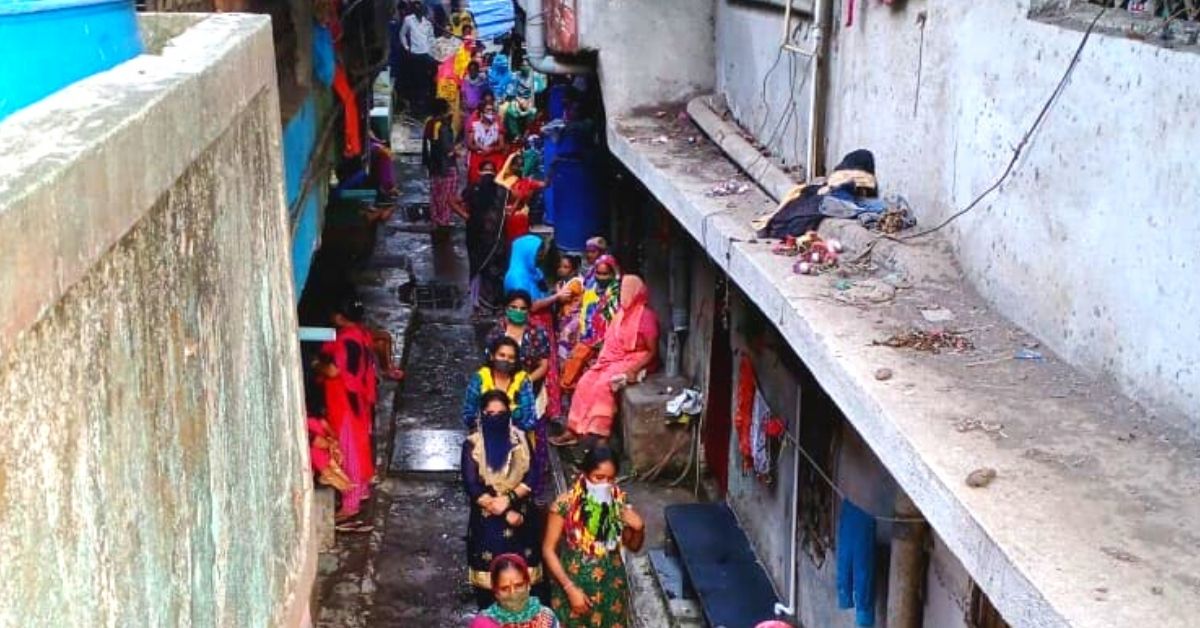
Saraswati (name changed to protect identity) has been a commercial sex worker for the last 17 odd years in Bhiwandi, Thane district. For the first time, she ran out of all her savings a couple of months ago.
Lockdown has completely shut all operations in the Hanuman Tekri area where Saraswati, a single mother, lives. She not only has to support her 15-year-old kid but also her parents – who live in Kathmandu.
Her meagre earnings before the pandemic were only some Rs 300 per day. But that had prevented her from going on the brink of starvation. Even that amount ended in March. Since then she had to survive on water for 3-4 days at a stretch so that her kid and parents do not go hungry.
Being a national of Nepal, she does not have ration that deprives her of getting subsidised food from the government. Even after some donors distributed food, she worried about long-term sustainability.
Saraswati was forced into prostitution as a minor, and since then this is the only profession she has worked in – despite having basic literacy. Pandemic took away her last option – forcing her to beg for food.
Like Saraswati, the livelihood of more than 300 sex workers in the red light area has been affected. Most are now at the mercy of donors and government.
But there is some hope. Dr Swati Singh Khan, the founder of the ‘Shree Sai Seva Sanstha’, has started ‘Yes, She Can’ project to provide alternate livelihoods to sex workers and help women who wish to do so find a way back to mainstream society.
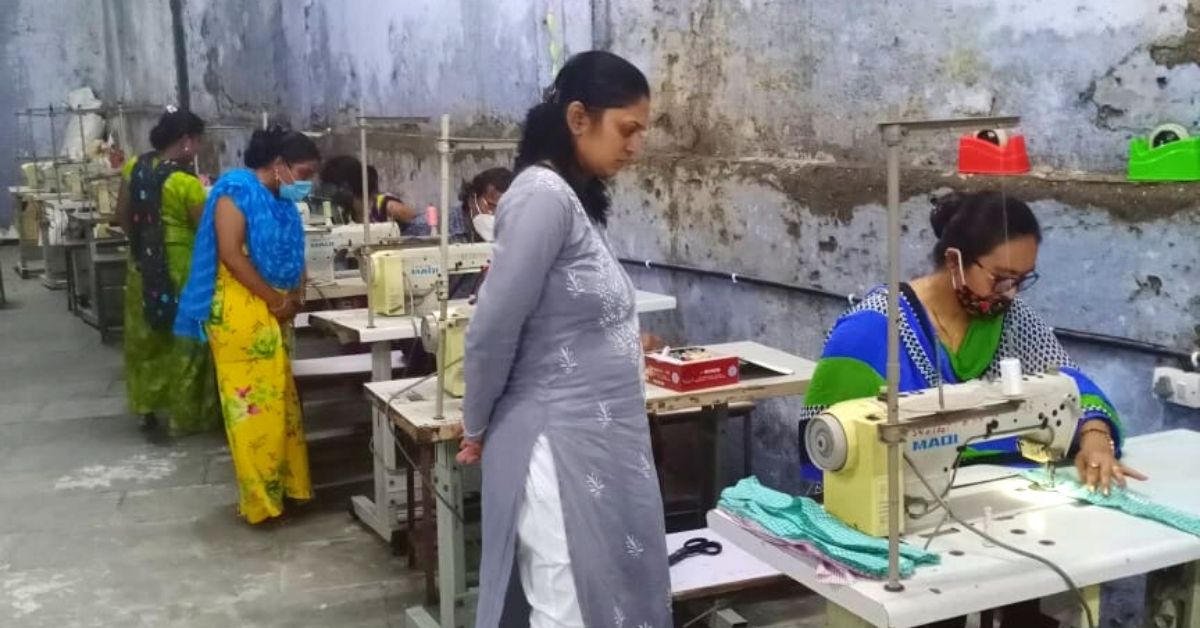
Interestingly, it was a group of sex workers who approached Swati with the idea of a sustainable livelihood after they felt ashamed of sitting idle at home and depending on the outsiders for food.
“I was forced into prostitution as a minor, and I never begged for money. I earned through my service. I am grateful to NGOs and local administration for helping us, but every day we cannot keep waiting for someone to donate grains or money. I thought we could leverage on the ‘Make-in-India’ spirit and generate a livelihood. If this works, I will leave the profession where unprotected sex and physical abuse is a daily affair,” Saraswati, in her thirties, tells The Better India.
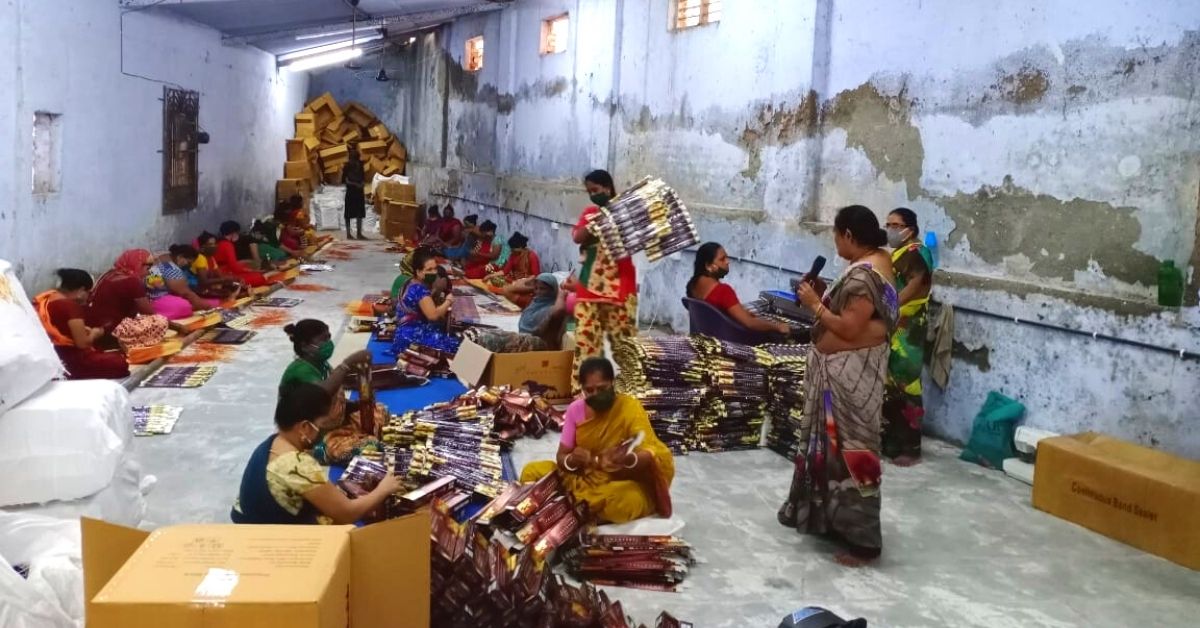
Dr Swati saw this as an opportunity and struck a deal with a local manufacturer of incense sticks in April. This was followed with collaborations with other organisations to make handicrafts, clothes, papads and pickles.
“I have been working with the women since 2016. When they came up with this idea, I believed them and started looking for opportunities. They are hardworking, sincere and always eager to learn a new skill. Their zeal to be accepted in the society is what is making our project successful,” Dr Swati tells The Better India.
From tailoring classes to making products for international exhibitions, close to 30 women are engaged in alternate livelihoods, earning up to Rs 200 daily. In the coming weeks, Dr Swati aims to employ over 130 women.
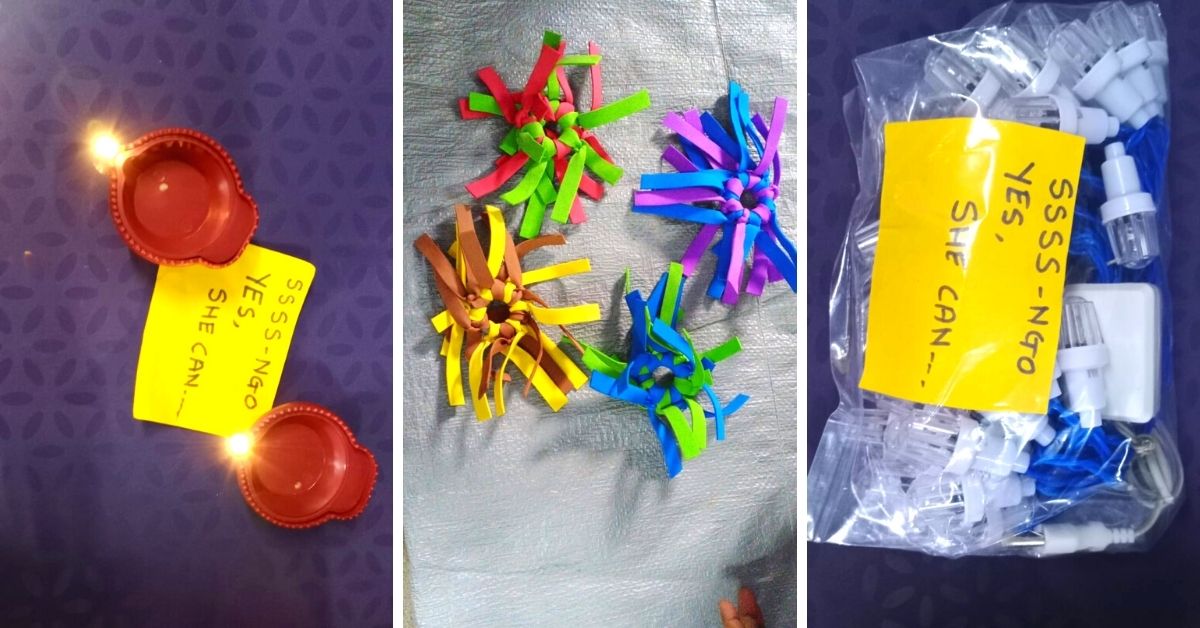
“Compared to my previous earnings, this is less, but I also know it is more dignified and stable. Once I get better at stitching, making diyas and light bulbs, I will amplify my work and get more money. I am grateful to Dr Swati for once again catering to our demands effortlessly. Hopefully, after the lockdown, I won’t have to go back to the sex business,” says 35-year-old Geeta (name changed to protect identity) – who has been in the profession for over two decades.
The Woman Who Never Gives Up
Dr Swati’s tryst with social work began when she was merely 6 or 7 years old, in Nasik. Seeing the domestic help’s daughter empty-handed while she would be gorging on dry fruits made her realise the economic divide early on.
Always eager to help others, she would share the food with the help’s daughter. In her teens, she even tried stopping a child marriage in her basti.
Once, while volunteering with a welfare community group, someone told her the best way to help the underprivileged is opening a formal NGO. This would also mean receiving financial aid from the government and reaching out to more people at once. The idea took root and never left her.
Fifteen years ago, Dr Swati moved to Bhiwandi after her marriage and got busy with her practice and children. But once her kids grew up and she settled properly in the city, she opened her NGO in 2016.

Not knowing which issue to address, she volunteered with Sharamjeevi Sanghatna, a local NGO working towards the welfare and protection of sex workers.
After a few visits to the red light area, she was moved by the plight of women and their children who had a bleak future. Being a mother and woman, she decided to work in the same field.
“I was informed about the unpardonable acts like physical abuse, unprotected sex, rape and even police brutality. They were exploited by goons and pimps who would forcibly take commissions. Just as I was digesting this bitter pill, I came to know about their children who were either left on streets to fend for themselves or trained to be sex workers or pimps,” shares Dr Swati.
Despite the willingness to help, the sex workers took some time to trust Dr Swati.
“In a scenario where we are treated like outcasts and often duped by the same people who pretend to help us, it was hard for us to believe her. But for weeks she would visit our area and make attempts to interact with us. Her genuine attempts impressed us since then she has been our didi, always ready to help,” says Saraswati.
Besides a cold shoulder from the sex workers, Saraswati also faced threats from pimps who would not let her help, “They feared I would report them for forcing the minors in the business. But all I wanted to do was rehabilitate the children and improve sex workers’ working conditions. None of their threats deterred my intentions.”
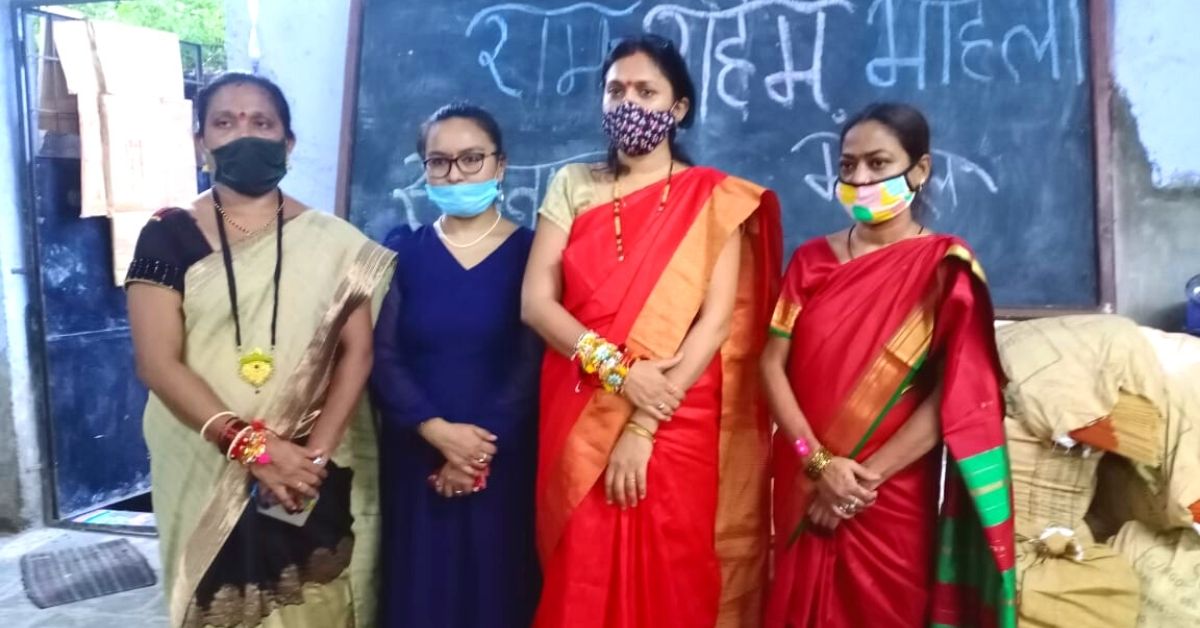
From establishing a daycare centre for children of sex workers, focusing on their education to organising regular medical camps and getting Aadhar cards for the mothers, Dr Swati went all out with her generosity.
A significant impact led by Dr Swati was the complete elimination of weekly haftas (protection money) by the goons and pimps in 2017. She managed to mobilise nearly 40 sex workers who marched to the police station and registered a formal complaint.
Seeing the positive results, the workers started demanding respect and just fares from customers. They now knew a change was possible with the right legal action and community-led efforts.
Dr Swati recently opened a Chechi (sister) house where sex workers (including Saraswati), who want to move out of this profession, can live.
“It is not easy for workers to leave the sex trade as no one will accept them. The lockdown has given us the avenues to help them. We have got four donors who have committed to pay rent for the Chechi house. Additionally, the alternate livelihood is taking a flight. Hopefully, by making this project successful, we can help more women,” says Dr Swati.
Dr Swati is one of those few trailblazers who genuinely brings a difference in society, despite all odds. Her zest and sincere efforts are very much needed in such bleak times. And a glimmer of hope to all the Saraswatis in the world.
Get in touch with the NGO here
(Edited by Vinayak Hegde)

Similar Story
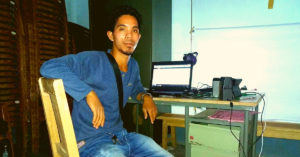
Meghalaya Villager Uses YouTube to Make Biodegradable Plates, Starts Own Business!
Dilseng Sangma had no formal training or financial resources to pursue his idea. But he persevered. Today, his forest-fringed manufacturing unit has won him the appreciation of the district collector!
Read more >
If you found our stories insightful, informative, or even just enjoyable, we invite you to consider making a voluntary payment to support the work we do at The Better India. Your contribution helps us continue producing quality content that educates, inspires, and drives positive change.
Choose one of the payment options below for your contribution-
By paying for the stories you value, you directly contribute to sustaining our efforts focused on making a difference in the world. Together, let's ensure that impactful stories continue to be told and shared, enriching lives and communities alike.
Thank you for your support. Here are some frequently asked questions you might find helpful to know why you are contributing?


This story made me
-
97
-
121
-
89
-
167












